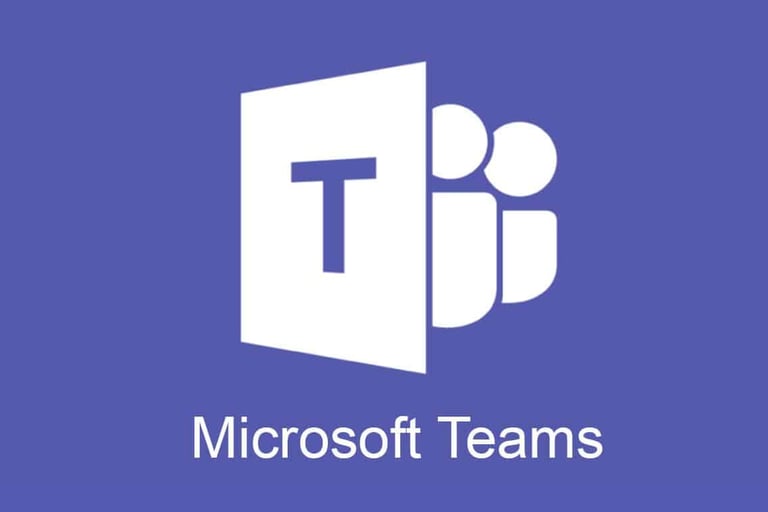5 Keys Considerations in Software Development: Implementing Effective Tools and Processes
Successful software development goes beyond coding; it requires effective project management methodologies, version control systems, and communication tools. This post explores how Agile practices, tools like Git and Slack, and robust testing frameworks contribute to project success and high-quality software delivery.
TECHCAREER
Laura Oliveira
7/27/20244 min read


Introduction
When embarking on a software development project, it's essential to recognize that writing code is only one part of the process. The real success lies in how effectively you implement the right tools and processes throughout the project. In this blog post, we’ll explore the crucial role of project management methodologies, version control systems, communication and collaboration tools, and testing frameworks, and how they contribute to the overall success of your software development efforts.
Project Management Methodologies
Project management methodologies play a pivotal role in guiding your software development process. Among the various methodologies available, Agile stands out due to its adaptability and effectiveness in managing projects with evolving requirements.
Agile methodologies such as Scrum and Kanban are designed to handle dynamic project environments. They emphasize iterative development and frequent feedback from stakeholders. Agile promotes flexibility, allowing teams to adapt to new information and deliver incremental improvements.
Incorporating Agile methodologies into your project can lead to more effective management of changing requirements, fostering continuous improvement, and enhancing collaboration among team members and stakeholders. This approach ensures that the software remains aligned with current needs and project goals.
Version Control Systems
Version control systems are indispensable for maintaining code integrity and facilitating collaboration among developers. Tools like Git and SVN (Subversion) offer robust solutions for tracking changes and managing codebases.
Version control systems provide several key benefits:
- Efficient Code Management: They enable precise tracking and management of code changes, ensuring modifications are recorded and can be reviewed.
- Enhanced Collaboration: Features like branching and merging support simultaneous development by multiple team members, managing conflicts effectively.
- Backup and Recovery: They offer backup capabilities, allowing teams to revert to previous versions of code if needed.
Using a version control system helps maintain a clean and organized codebase, supports collaborative development, and ensures that code integrity is preserved throughout the project.
Communication and Collaboration Tools
Effective communication and collaboration tools are essential for smooth project coordination, especially in teams that are distributed across different locations. Platforms like Slack, Jira, and GitHub play a crucial role in facilitating communication, task management, and version control.
Communication tools like Slack enable instant messaging and real-time updates, aiding quick decision-making and issue resolution. Jira provides comprehensive task management and project tracking features, ensuring alignment with project goals and deadlines. GitHub supports collaborative code review, issue tracking, and version control, enhancing the development process’s efficiency.
These tools help maintain effective communication channels, streamline task management, and facilitate collaboration, contributing to a more organized and productive development process.
Testing Frameworks
Implementing a robust testing process is essential for ensuring the software’s quality and reliability. Effective testing frameworks, such as JUnit, Selenium, and JUnit 5, are instrumental in identifying bugs early and verifying that new features do not disrupt existing functionality.
Testing frameworks support:
- Early Bug Detection: Automated testing facilitates early identification of issues, leading to quicker resolutions and higher-quality software.
- Regression Testing: They ensure that new features do not introduce regressions, maintaining software stability.
- Increased Efficiency: Automated tests can be executed repeatedly and quickly, saving time compared to manual testing and improving overall efficiency.
Utilizing testing frameworks helps in maintaining high software quality by detecting bugs early, ensuring stability with regression tests, and enhancing efficiency through automation.
Conclusion
The tools and processes you choose to implement in a software development project are integral to its success. By selecting the right project management methodologies, version control systems, communication and collaboration tools, and testing frameworks, you set a strong foundation for your project's success. Each component plays a crucial role in facilitating effective collaboration, managing code changes, and ensuring the delivery of high-quality software.














Laura Oliveira
Mobile Developer and Content Creator
Fascinated by technology since she was a teenager, she loves solving problems and learning new things.
I currently work bringing ideas to life for Android apps.
I have +2 million people impacted through the production of digital content.


2M+
3
Years Creating Content
Content Reach
